About the Conference
The term “Integration” in the title of the conference refers to several aspects of the event.
Firstly, distinguished Polish and international experts will discuss the current status of cognitive-behavioral therapy and its techniques in the treatment of emotional disorders.
Secondly, the conference will be a unique meeting of students and graduates of SWPS University’s School of Cognitive-Behavioral Therapy – Poland's largest psychotherapy training center, which celebrates its 15th anniversary this year. We hope this meeting will not only strengthen the ties within our academic community, but also integrate the community of CBT therapists.
Thirdly, we aim to develop stronger relationships between the health care community and CBT therapists. Consequently, we intend to increase the use of empirically proven psychological methods of prevention and treatment in health care.
Lectures will be held in English and Polish and will be translated simultaneously.
The speakers will participate in the conference in-person or online, depending on the current global epidemic situation and possible travel restrictions.
Conference Photos
The conference photos are now available on SWPS University's Flickr account.
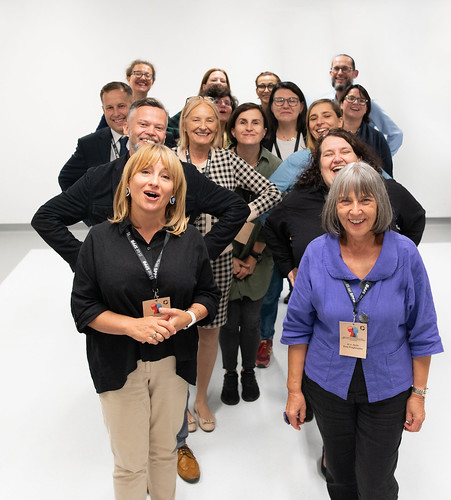
Speakers
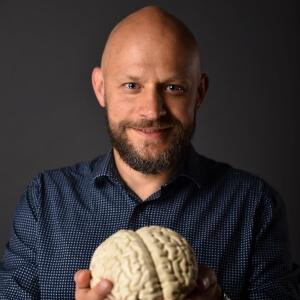
Mateusz Gola
Professor
Holds an Associate Professor position at the Institute of Psychology of the Polish Academy of Sciences and the Institute for Neural Computation at the University of California in San Diego. His research expertise is in neuroscience of behavioral addiction, with a focus on compulsive sexual behaviors (CSBD). He has authored and co-authored over 120 scientific publications in various journals, including World Psychiatry, Lancet Psychiatry, Nature Neuropsychopharmacology, Journal of Behavioral Addictions, and Journal of Sexual Medicine. His work contributed to the understanding of neural and psychological mechanisms underlying problematic pornography use and CSBD and its inclusion in the WHO’s ICD-11 classification.
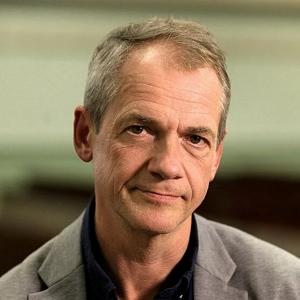
Stefan G. Hofmann
Professor
Is the Alexander von Humboldt Professor of Clinical Translational Psychology of the Philipps-University Marburg, Germany, and also Professor of Psychology at the Department of Psychological and Brain Sciences at Boston University. He has been president of the Association for Behavioral and Cognitive Therapies and the International Association for Cognitive Psychotherapy, and is editor-in-chief of Cognitive Therapy and Research. He has published more than 400 peer-reviewed journal articles and 20 books. He has been included in list of a Highly Cited Researcher by Clarivate and Thomson Reuters since 2015, among many other awards, including the Aaron T. Beck Award for Significant and Enduring Contributions to the Field of Cognitive Therapy by the Academy of Cognitive Therapy. His research focuses on the mechanism of treatment change, translating discoveries from neuroscience into clinical applications, emotion regulation, and cultural expressions of psychopathology. He is the co-developer of Process-based Therapy, a transtheoretial model of psychotherapy based in evolutionary science using a complex network approach to target the fundamental processes of treatment change with simple core therapeutic principles. For more information, see: www.bostonanxiety.org.
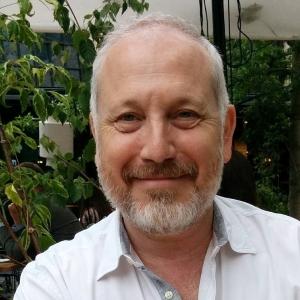
Eduardo Keegan
Professor
Is a Professor of Clinical Psychology and Psychotherapies and Director of the Specialist Course in Clinical Psychology and Cognitive-Behavioral Therapy at the University of Buenos Aires, Argentina. He is a former president of the Argentinian Association of Cognitive Therapy [Asociación Argentina de Terapia Cognitiva]. He is currently a member of the Board of the Latin American Association of Cognitive-Behavioral Therapy and an Honorary Member of the Polish Association for Cognitive and Behavioural Therapy. His research interests focus on perfectionism and processes in psychotherapy. In 2011, he received the Grand Masters award for his career achievements from the University of Buenos Aires.
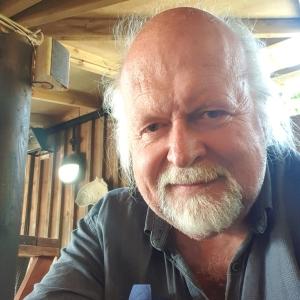
Andrzej R. Kuczmierczyk
Professor
Is a Professor of clinical psychology at the University of Hertfordshire. Previously, he lectured at the University of London and at medical schools in New York and New Orleans, where he held the position of Director of Behavioral Medicine. He specializes in treating anxiety symptoms, psychosomatic conditions and chronic pain. Andrew Kuczmierczyk is involved in the development of Forgiveness Impact Therapy [FIT] from a cognitive-behavioral therapy perspective. He is the author of several publications on the assessment and treatment of psychosomatic illness and poetry collections.

Christine Padesky
Professor
Is the Co-Founder of the Center for Cognitive Therapy in Huntington Beach, California. She is also a Distinguished Founding Fellow of the Academy of Cognitive Therapy, a Visiting Professor at the University of East London, and a leading CBT innovator. She and Kathleen Mooney, PhD created Strengths-Based CBT, which helps clients construct new beliefs and behavioral strategies in order to improve their overall functioning and relationships. Padesky has taught more than 500 workshops on 5 continents, provides consultation for therapists, hospitals and mental health clinics worldwide and develops audio and video
therapist training materials. Her presentations integrate theory, empiricism, creativity, and practical skills. Dr. Padesky is recipient of BABCP's Most Influential International CBT Therapist award and the California Psychological Association's Distinguished Contribution to Psychology award. In 2007 she received the Aaron T. Beck Award from the Academy of CBT for her enduring contributions to the field. She is a co-author of five books, including
Mind Over Mood, voted by BABCP the most influential CBT book of all time.

Maria do Céu Salvador
Professor
Is an Assistant Professor at the University of Coimbra, Portugal, where she teaches cognitive-behavioral models and cognitive behavior therapy with children and adolescents. She is also an accredited psychotherapist and supervisor and the President of the Portuguese Association for Behavioral Therapies. Maria do Céu Salvador is a member of the Center for Research in Neuropsychology and Cognitive and Behavioral Intervention. Her main research fields include social anxiety, test anxiety, and depression in adolescents and adults, developing and validating assessment instruments, treatment efficacy, and bridging the gap between second and third generation therapies. She also teaches in several accredited training programs in Portugal and abroad.
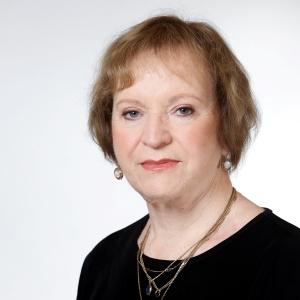
Yona Teichman
Professor
Is a Clinical Psychologist and Professor Emerita of Clinical Psychology at the School of Psychological Sciences, Tel-Aviv University, Israel where she served 6 years as the Chair of the Child Clinical Program. Her research interests include clinical and social psychology. She integrates systemic and cognitive principles of therapy, applying them particularly to the treatment of depression. In 2012, The Polish Association for Cognitive and Behavioral Therapy granted her the status of Honorary Member. In 2013, she founded the Graduate Program for Clinical Psychology at The Interdisciplinary Center (IDC) in Hetrzeliya, Israel, which became The Reichman University (RU). She served as the head of this program until 2018. Recently, she has been engaging in research, teaching and writing about Clinical Supervision.
We kindly inform you that the conference registration is CLOSED.
Attendees will receive a certificate confirming their participation in the conference and the completion of 13 teaching/learning hours.
The fees are the same for both in-person and online participants.
Registration Fees
EARLY BIRD REGISTRATION
deadline July 10, 2022
School of Cognitive-Behavioral Therapy Student/Graduate EUR 110 (USD 119)
SWPS University Lecturer/Student EUR 140 (USD 149)
PTPPB Member* EUR 150 (USD 159)
Other participants EUR 170 (USD 179)
GENERAL REGISTRATION
July 11 – September 11, 2022
School of Cognitive-Behavioral Therapy Student/Graduate EUR 120 (USD 130)
SWPS University Lecturer/Student EUR 150 (USD 160)
PTPPB Member* EUR 160 (USD 170)
Other participants EUR 180 (USD 190)
*with membership fees paid up to 2022.
Organizer
The School of Cognitive-Behavioral Therapy is recommended by Polish Association for Cognitive and Behavioural Therapy.
You can learn more about our school's achievements by watching the video below.
Event held under the honorary auspices of
Professor Roman Cieślak, Rector of SWPS University
Event held under the auspices of
Partners
Scientific Committee
- Agnieszka Popiel, M.D., Ph.D./Associate Professor
- Ewa Pragłowska, Ph.D.
- Professor Bogdan Zawadzki, Ph.D.
- Professor Wiesław J. Cubała, M.D., Ph.D.
- Ida Derezińska, M.A.
- Maria Gałuszko-Węgielnik, M.D., Ph.D.
- Magdalena Skotnicka-Chaberek, M.D., Ph.D.
- Artur Wiśniewski, M.D., Ph.D.
Organizing Committee
- Katarzyna Piotrowicz, M.A.
- Małgorzata Wawrzyniak, Ph.D.